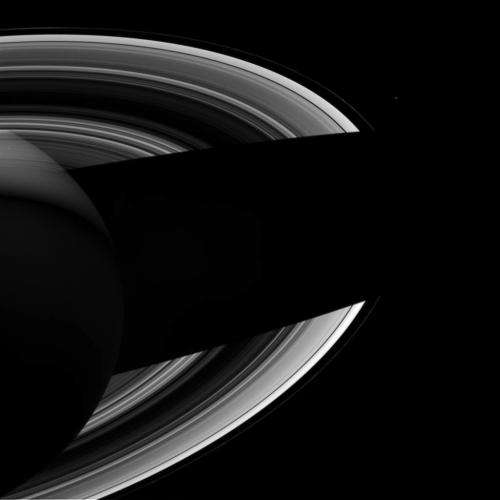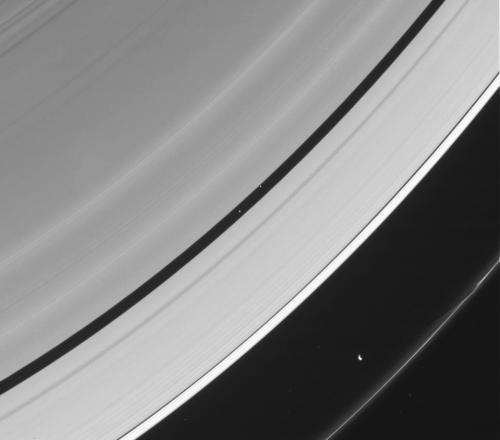Credit: NASA/JPL/Space Science Institute
Take a look up at the enormous shadow cast by Saturn onto its own rings in this raw image, acquired by NASA's Cassini spacecraft on September 18, 2012.
Cassini captured this image from below Saturn's ring plane at a distance of 1,393,386 miles (2,242,437 kilometers). It shows not only the gas giant's shadow but also the wispy nature of the rings, which, although complex, extensive and highly reflective (the light seen on Saturn above is reflected light from the rings!) they are still very thin—less than a mile (about 1 km) on average and in some places as little as thirty feet (10 meters) thick.
Seen in the right light, some of the thin innermost rings can seem to nearly disappear entirely—especially when backlit by Saturn itself.
Cassini spots shepherd moons Pan (within the Encke Gap) and Prometheus (along the inner edge of the F ring) in an image acquired on Sept. 18, 2012. Credit: NASA/JPL/Space Science Institute
Views like the one above are once again possible because of Cassini's new orbit, which takes it high above and below the ring plane, providing a new perspective for studying Saturn and its moons. Ultimately by next April the spacecraft will be orbiting Saturn at an inclination of about 62 degrees—that'd be like an orbit around Earth that goes from Alaska to the northernmost tip of Antarctica. (Find out how Cassini alters its orbit here.)
With this viewpoint Cassini will get some great views of Saturn's north and south poles, which are gradually moving into their summer and winter seasons, respectively, during the ringed planet's 29.5-Earth-year orbital period.
After more than 8 years in orbit Cassini is still fascinating us with enthralling images of Saturn on a regular basis. Read more about the Cassini mission here.
Source: Universe Today

























